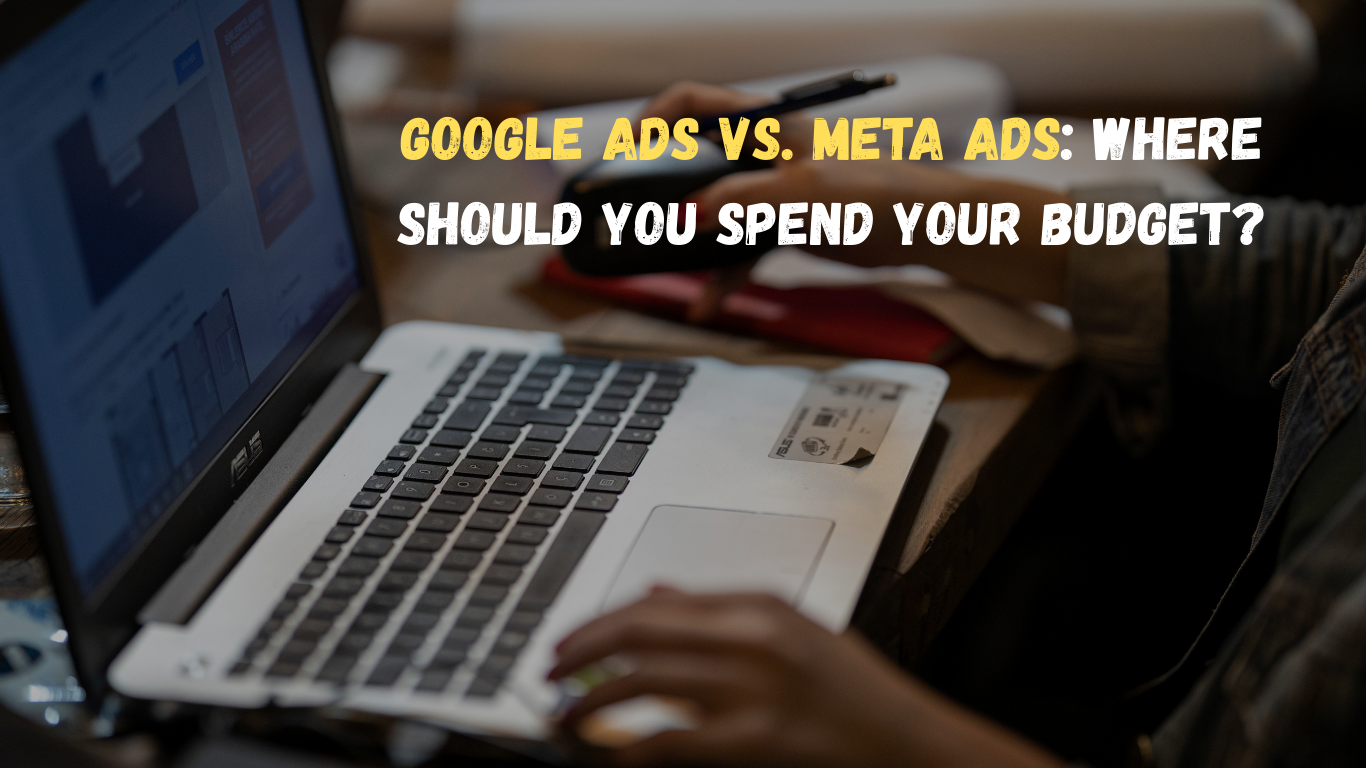When it comes to digital marketing, businesses often face one big question: Should I invest in Google Ads or Meta Ads (Facebook & Instagram Ads)? Both platforms dominate the online advertising industry, but they work differently and serve different purposes. If you’re trying to maximise your ROI, understanding the strengths of each is crucial. In this blog, we’ll compare Google Ads vs. Meta Ads and help you decide where to allocate your marketing budget.
Understanding Google Ads
Google Ads is a search-based advertising platform. It shows ads when users actively search for something on Google. These are known as intent-driven ads because users are already looking for a product or service.
Why Choose Google Ads?
- High-intent audience (users are searching for what you offer).
- Wide reach through Google Search, Display Network, YouTube, and Gmail.
- The pay-per-click (PPC) model helps control ad spend.
- Great for generating leads and direct sales
For example, if you run a travel agency and someone searches “best holiday packages in Jaipur,” your ad can appear instantly on Google’s first page.
Understanding Meta Ads
Meta Ads (Facebook & Instagram Ads) are interest-based advertising platforms. Instead of waiting for people to search, these ads appear while users browse social media. They rely on targeting demographics, interests, and behaviours.
Why Choose Meta Ads?
- Excellent audience targeting with age, location, interests, and behaviours.
- Highly visual ad formats (images, reels, carousels, stories).
- Builds brand awareness and customer engagement.
- Cost-effective for reaching larger audiences.
For example, if you own a fashion brand, you can target young audiences on Instagram who are interested in clothing, fashion influencers, or online shopping.
| Factor | Google Ads | Meta Ads |
|---|---|---|
| Audience | Intent-driven (search-based) | Interest-driven (social behavior) |
| Best For | Lead generation, sales | Brand awareness, engagement |
| Reach | Google Search + Display Network | Facebook, Instagram, Messenger |
| Ad Formats | Text, display, video, shopping | Image, video, carousel, story |
| Cost | Competitive (PPC bidding) | Generally lower CPM (cost per 1000 views) |
| Targeting | Keywords, demographics, remarketing | Interests, demographics, lookalikes |
Where Should You Spend Your Budget?
The right platform depends on your business goals:
- Choose Google Ads if
- You want direct leads or sales.
- Your audience actively searches for your product/service.
- You run industries like travel, healthcare, real estate, or education.
- Choose Meta Ads if
- You want to build awareness and brand recognition.
- You have visually appealing products (fashion, lifestyle, food)
- You want cost-effective engagement with a wide audience.
- Best Strategy
- Use both platforms together. Start with Meta Ads to build awareness and retarget interested users with Google Ads for conversions.
Digital Marketing Course in Jaipur
If you’re a student, entrepreneur, or business owner looking to master Google Ads and Meta Ads, enrolling in a professional digital marketing course can be a game-changer. Platforms like Digital Marketing Course in Jaipur offer practical, industry-ready training that covers.
- Google Ads (Search, Display, YouTube).
- Meta Ads (Facebook & Instagram).
- SEO, Content Marketing, Email Marketing.
- Analytics and Conversion Optimisation.
With expert mentors and hands-on learning, such a course equips you with the skills to spend your ad budget wisely and generate maximum ROI.
Conclusion
The debate of Google Ads vs. Meta Ads isn’t about which is better—it’s about which suits your goals. If you need quick leads and direct sales, Google Ads is often the best choice. If your priority is brand awareness, customer engagement, and building a loyal audience, Meta Ads are more effective.
The smartest approach for most businesses is to combine both platforms—using Meta Ads to attract attention and build awareness, and Google Ads to capture high-intent customers ready to convert. With the right strategy, you can maximise your ROI and ensure your marketing budget works harder for you.


